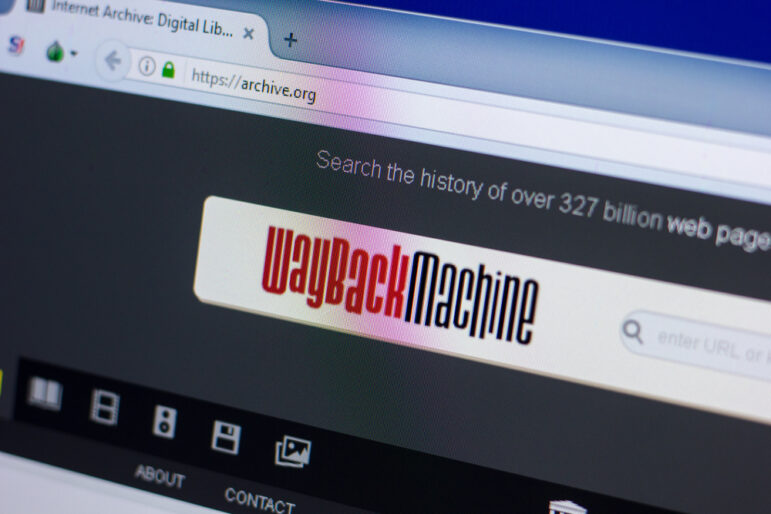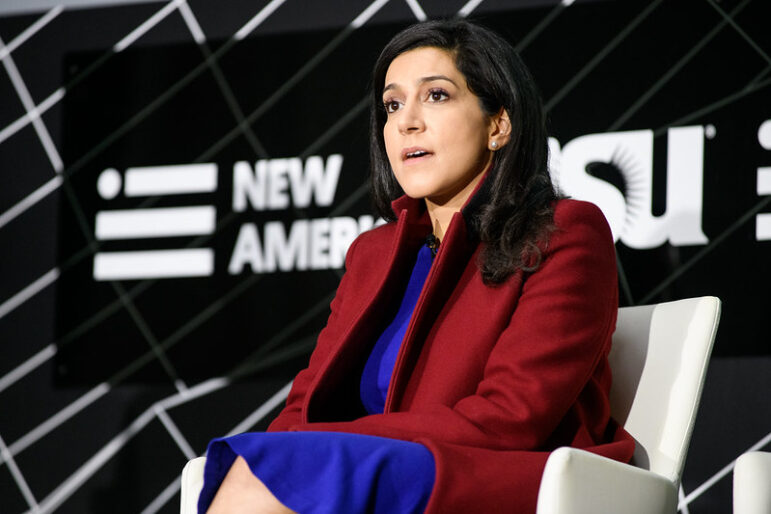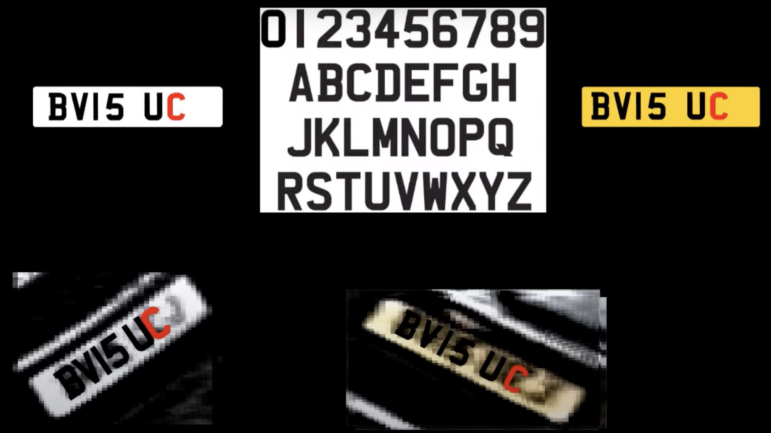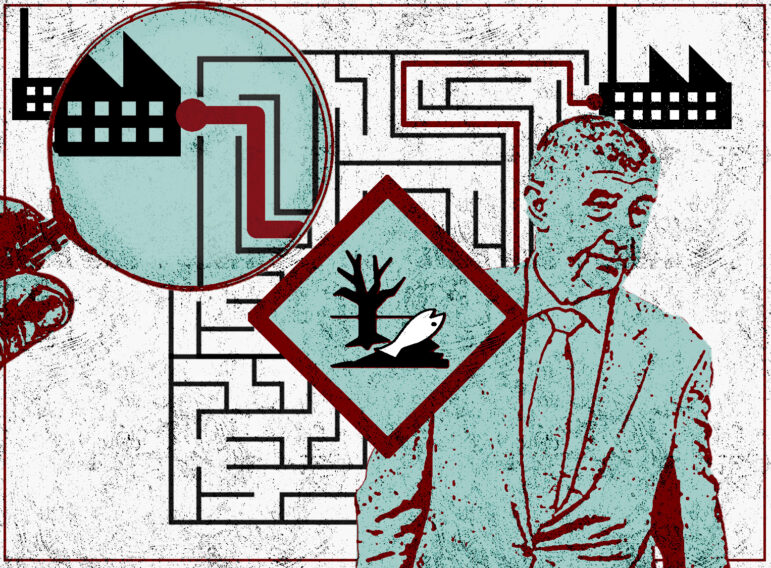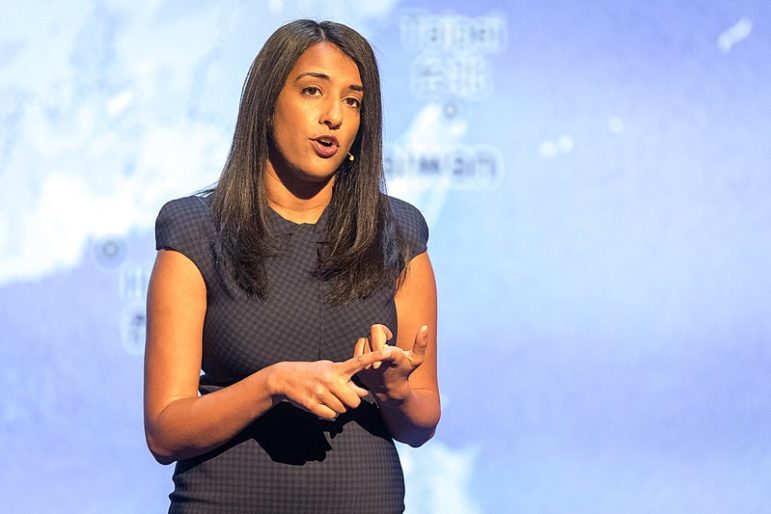

Megha Rajagopalan: What I’ve Learned About Investigative Journalism

Megha Rajagopalan at the 2018 Oslo Freedom Forum. Photo: Tore Sætre / Wikimedia. Republished under a Creative Commons License
Journalist Megha Rajagopalan has reported from over 23 countries in Asia and the Middle East, on stories ranging from the North Korean nuclear crisis to the peace process in Afghanistan. Previously, she spent six years as a correspondent in China for Reuters and BuzzFeed News. Her most recent work has focused on documenting the scope and impact of China’s mass detention of Muslim minorities in its Xinjiang region. Together with architect Alison Killing and programmer Christo Buschek, she used geospatial analysis, architectural modeling, and dozens of interviews to produce a series on the subject that won the 2021 Pulitzer Prize for International Reporting.
Rajagopalan spoke to Tactical Tech about how she became a reporter, investigating in China, speaking to vulnerable sources, and the skills that make a good investigative reporter. The podcast they produced is accessible below, and the text that follows contains extracts from the podcast, which have been edited by GIJN for length and clarity.
On Becoming an Investigative Reporter
Megha Rajagopalan: “You could say I was a… beat reporter on general news in China. And a lot of my investigative work has grown out of that. All my investigative work has been journalistic: I guess for journalists there’s not the kind of strict division between investigative work and regular journalistic work that maybe people outside the industry might imagine.”
“To be a good investigator as a journalist, I think… it comes out of trying hard to develop an expertise in the subject, getting to know people that are true experts, and just spending a lot of time covering developments, rather than diving in and just doing one big story or one big series.”
What Makes a Good Investigator
MR: “On a personal level, obviously I think discovery is a thrill, you know, it’s really gratifying. If there is some piece of information or some document or some piece of evidence that you’re looking for, I think if you have to do a lot of digging to be able to get to it. Once you get to it, it is this kind of sense of relief. You know that you have enough to put a story together to do the thing that you set out to do.”
“I feel like a lot of people that do investigations are sort of naturally good at it. They’re curious people, they’re people that know how to think strategically. And once you complete all of these things that you’re supposed to do to get to the information, once you actually get to it, it’s kind of amazing.”

The BuzzFeed investigation of Uyghur detention, based on thousands of satellite images, revealed a vast state infrastructure dedicated to long-term detention and incarceration in China’s far-west region of Xinjiang. Image: Screenshot
Why Cross-Field Collaboration Works
MR: “What Alison [Killing] and I have been focused on doing is figuring out what the facts on the ground are. I think that’s sort of how I see our contribution. And I have thought, if we weren’t doing this work, probably nobody else would do it. I think, particularly in this case, because it’s such a weird combination — it’s like a journalist and a programmer and an architect working on a project together — I guess the work we produced was kind of a marriage of all three of those backgrounds…”
“Alison especially — when I met her I had been reporting on Xinjiang on and off for a few years, and I thought I knew the issue pretty well. But when I met her, she immediately had this completely different approach. She immediately started thinking about the physical spaces that these people were being held in, where the camps were and the region, and what that would tell us. It was just a completely different mode of thinking. I was just blown away by that. She thinks in a way that it comes naturally to her. And I could never do that.”
“I really hope that the industry — the media industry — will broaden the way they think about investigators. I think there are so many people with different specialties, like in academia, in fields like toxicology and architecture, geospatial analysis, data sciences, AI [artificial intelligence], that have the potential to work on journalistic projects and to contribute to projects that are intended for the general public.”
“And I think that I personally, and my news organization, we’ve gained so much from breaking down that wall and going to work with an architect and a programmer on this project.”
Her Break in Investigative Journalism
MR: “The other big thing that got me interested in investigation as a kind of journalism was my first job out of college. I was a book assistant for a writer named Steve Coll, who is currently the dean of Columbia Journalism School. At that time, he was writing a book about ExxonMobil, Private Empire, ExxonMobil and American Power.
“It was really interesting to try to figure out how to get to the center of some of these issues, like this whole process of, you start from the outside and then you work your way in and you get to the person that’s the closest to what you want to figure out. That’s something you have to figure it out by doing it, being told, ‘find out everything you can about this,’ and then having to figure out who all of the people close to it were, what order to approach them, what documents I should be looking for, how to ask for documents, where to find documents, how to go through them. It was the first time that I had done this whole process and I just really enjoyed it.”
“It was just the most incredible thing, learning a method and just gradually getting better at the craft, improving my interviewing skills and my planning skills.”
On Learning from the Pros
MR: “The other thing is that I just learned a hell of a lot just by watching [Coll] interview and watching him work. He has this style that I still kind of try to mimic today — I think, even though it’s many years later — in that he asks people questions in a very open way in order to help them feel that he’s making a sincere effort to understand where they’re coming from.
“Sometimes that takes a bit longer and it can be tricky if you’re working with a source who’s very busy or doesn’t have a lot of time, but in general, I think it yields better responses than if you just sort of dive in. The remarkable thing about that technique is it can work with a source that’s friendly and it can also work with somebody who’s hostile.”
Who Talks to Journalists, Anyway?
MR: “A lot of people like friends of mine who are not journalists, always ask me, ‘Why would anyone ever talk to you? Why would anyone leak a document to you?’ Because no one can, most people cannot imagine doing something like that. And in fact, people who do it also sometimes could not have imagined doing it until they were actually doing it. I guess one thing I learned sort of early on is that it’s really important when you’re talking to someone, especially if you’re trying to get some bit of information from them, to think about what is actually their motivation to help you with this, right? People have all kinds of motivations to talk to journalists.”
On Her Investigation into the Drugs War in the Philippines
MR: “I did this investigation in the Philippines. This was the first investigative project I did after I joined BuzzFeed, and this was at the height of the drug war there. For anyone who doesn’t know, the president of the Philippines, whose name is Rodrigo Duterte, basically launched this campaign of police, police violence, honestly, and vigilante killings of people who were suspected drug users.
“I went to Manila. I went to a bunch of different police stations, police units, in metro Manila. And I literally showed up with a T-shirt and jeans and a backpack, and then I started asking them all these questions about how they were acting in the drug war. And I think because of the way I was dressed and the way I looked, there was already this level of, you know, maybe underestimation.
“There was one police official who even said… ‘The drug war has been really successful, we’ve seen rates of burglary, robberies, all of these crimes going down.’ He was, like: ‘Of course the murder rate has gone through the roof, but that’s to be expected.’”
On the Investigative Process
MR: “You start with a research question, you start with a question about what you want to find out, and then you sort of divide that question up and figure out how to get to each individual part.”
“I think the thing that worked with that [Phillipine drug war] story is putting those three components together: the narratives and personal stories of the people that were impacted as well as the information about how they dealt with the police and where they were located, the document that showed where the US money had actually gone to, and then the third thing was of course the data and the interviews with the police officers who sort of explained what they were doing on the ground.”
On Source Protection
MR: “I spend a lot of time thinking about source safety. I think everyone really has to, I think it’s a responsibility. It’s really hard, especially working on China issues… you can’t protect your sources in the same way that you would somewhere else.
“On a philosophical point, I guess I always try to think about consent and what does consent mean when you interview someone. For me, if I’m interviewing someone who’s really vulnerable… Like supposing somebody who was formerly detained in an internment camp in Xinjiang. You know, if they say to me, ‘I want to give my name, I want to attach my photo to this.’ I really want to make sure they understand what that means.”
“I want them to understand if this is going to have an impact on any family that they might have in China, for instance. Basically what it means to have their name and their photo, on a site like BuzzFeed, which has no paywall and is at the top of your Google results. They may not necessarily — if they’re not reading English-language news — they may not really know what that means.”
“By the same token, I think the flip-side of that is that for somebody that genuinely wants to come forward, wants the credibility of having their name or photo associated with their story and understands that that will make the story better and more believable to readers, I don’t want to deny them the opportunity to do that. If they’re taking on a risk and they’re sort of mindfully choosing to take on that risk, that’s their agency and that’s their right. And I’m happy for them to do that.”
Her Personal Story
MR: “I’m not sure how good I am at putting people at ease, but I do feel that being underestimated has been a positive thing for me and my career, and there are probably a lot of women that can say that as well.
“I lay awake at night thinking: Did I screw this up? Did I screw that up? Is someone going to get blowback that I don’t want… But I think that’s good. You have to worry about those things. I think if you’re not worrying about those things, you’re actually doing a disservice.”
“I remember myself as an early career journalist and being intimidated by people who described themselves as investigative reporters and thinking, it’s hard to do that kind of work unless that’s your title or you have a specific mandate from your employer to do that kind of work.”
“[But] you don’t want to immediately frame everything you do as an investigation. It may be that you’ve produced something that uncovers some kind of wrongdoing, but I guess to term it as an investigation from the outset, it’s almost like you’re predetermining what the final result is going to be. I always think it’s more helpful just to approach people and say: ‘Oh, I’m a reporter. I’m doing interviews about this subject, I’m just trying to understand your background or what you feel about X.’”
The podcast was produced by Tactical Tech as part of their Exposing the Invisible series featuring interviews with investigators, including a number of investigative journalists, around the world. The audio and full transcript of this interview can be found here, and the full series link is here. The interview, production, and sound design was by Jo Barratt, and it is republished here with permission under a creative commons license.
Additional Resources
How to Expose Lies from the Skies Using Satellites and Drones
Interrogating China’s “Google Maps” to Investigate the Xinjiang Detention Centers
A Global, Best-of List of Recent Investigative Podcasts
Tactical Tech is an international NGO that engages with citizens and civil-society organizations to explore and mitigate the impacts of technology on society.


